MEP Gyöngyösi: Declaration of principles

Sponsored content
MEP Márton Gyöngyösi’s (Non-attached) thoughts via press release:
As Hungary’s only true people’s party, we want to declare our commitment to our social objectives for all our current and future supporters and all of our compatriots:
OUR VALUES
JOBBIK is proud to be a patriotic, Christian, conservative, centre-right, socially sensitive people’s party.
We are a patriotic party: we wish to promote the social advancement of Hungary and the entire Hungarian community. Our future plans and policies are built upon the progress of our homeland.
We are a socially sensitive Christian party: the pillars of our policies are the representation of the Hungarian people, Christian ethics and social principles.
We are a modern conservative party: we believe the only way for building a better future in the 21st century is through preserving our national values and traditions.
We are a centre-right people’s party: we always focus on the interests of Hungary and the Hungarian people instead of a political group or an ideology. On the other hand, we reject hatemongering and extreme political views that are contrary to Christian values and ethics.
With the help of God, we want to give back the hope of a better future for the Hungarian communities living within and beyond our borders. We wish to build an independent, liveable and proud Hungary for all members of our nation, which is only possible in a country that prospers in all aspects of life. Therefore our daily decisions are guided by our intent to make sure that the critical challenges of the upcoming decades or centuries are not faced by a depleted nation.
EQUAL CHANCES FOR ALL MEMBERS OF THE HUNGARIAN NATION! BUILD A HUNGARY WITH SHARED PROSPERITY!
We want to build an honest and fair society where all of our compatriots, regardless of their gender or political affiliations, can exercise their democratic rights, such as the freedom of speech, assembly and the press, where equal chances are not limited, where nobody “is left behind” and where the equal access to healthcare, education and culture is not a privilege but a fundamental right. We want to accomplish these goals in all regions of Hungary and for all members of our nation.
FREE ENTERPRISE AND REWARD FOR WORK
JOBBIK believes that democracy can only be operated by free people who do not depend on political kingpins, oligarchs or multinational corporations. That is why we support individual and local initiatives, innovation as well as personal autonomy. We believe that the fruits of development must be shared with all citizens of our nation.
We are convinced that a democratic national government must support Hungarian enterprises, reward hard work and performance and promote the economic development and job creation in all regions of our country, strictly complying with the principle of equal pay for equal work and raising the value of Hungarian labour to a European level. Our most important objective for all Hungarian individuals and families is to enable them to prosper in our homeland so that hundreds of thousands of our compatriots would not need to leave their country!
SECURITY
In today’s world stricken by international and domestic conflicts, we want to build a Hungarian state where citizens are protected from threats, immigration as well as digital oppression and where the state leaders abide by the law as much as citizens do. The state will come down hard on those who break the law, including “white-collar” criminals and corrupt politicians and no longer allow the state to abuse its power.
We will persecute all forms of corruption. We will do whatever it takes to hold accountable all those who have caused any harm to the Hungarian State!
JOBBIK wishes to eliminate such drivers of crime as social deprivation, deep poverty and educational disadvantages.
JOBBIK believes that a healthy society is the backbone of social security, so we aim to revitalize and reinforce Hungarian families and local communities.
INDEPENDENCE
JOBBIK is willing to engage in cooperation with other political parties on such causes that are in line with our supporters’ expectations to restore democracy and the rule of law. On the other hand, we also wish to emphasize that JOBBIK is an independent political movement which adheres to its solid values and is honest with its voters. We are deeply convinced that our fundamental calling is to help people truly exercise their rights and honour their responsibilities. This means that we want to enable all Hungarian women and men to freely exercise their political rights and assume their inherent responsibilities, as well as to enjoy the fruits of prosperity without risking their livelihood. We are building a civil society where citizens are not vulnerable to any pressure by the state. Instead, they are able to control its operation through elected representatives who are held accountable to their constituents.
OUR HOPE
JOBBIK is a 21st-century party since we want Hungary to invest in the future and gain from the social and economic changes brought on by the 21st century. Our Party works for a merit-based Hungary where honest people have nothing to fear, where individual ambition is encouraged and where the way for social advancement is not through nepotism and servility to the governing party. In JOBBIK’s view, such goals can only be achieved by a strong Hungary that is not an outcast in the democratic world. Hungary must be a country appreciated worldwide for its national values and performance. We want to restore Hungary’s international reputation as an independent and useful member of the European Union and the Euro-Atlantic cooperation. We intend to provide equal opportunities for each Hungarian region to use the European and domestic funds. JOBBIK wants to safeguard our children’s future by preserving a liveable and blooming social and natural environment for them so that they could grow up in a Hungary with shared prosperity.
PERSONAL LIBERTY
JOBBIK firmly believes in the people of Hungary and respects their personal liberty. We are convinced that individuals, families and communities know best what decisions they should make and how they should organize their lives; therefore there is no need for any ideology, political party, state or leader to control citizens and social groups. We respect the freedom of all our compatriots and believe that the noblest form of individual self-expression is to actively work for the community.
OUR PLACE IN EUROPE
JOBBIK is a European party that fully understands the significance of Hungary choosing Europe and Christianity over a thousand years ago. We are also aware that our country’s future lies in Europe; hopefully, a better one we want to contribute to. We consider the European Union’s Christian founding fathers Konrad Adenauer, Alcide De Gasperi and Robert Schuman as our ideological predecessors who, relying on their strong faith, laid down the foundations for the Union and its social market economy, which launched an unprecedented growth in post-war Western Europe.
PROTECTING THE ENVIRONMENT
As a party working for prosperity in Hungary’s rural areas, JOBBIK is passionately committed to protecting our natural and built environment as well as to preserving our national values. The protection of our environment and climate, and building sustainable communities for Hungarian families are the cornerstones of our policy. JOBBIK wants to accomplish this mission in close cooperation with the local governments and families that are not dependent upon the state. If we preserve the achievements of Hungarian rural culture and the centuries-long traditions of sustainable agriculture, we believe economical bio- and eco-farming can be instrumental in revitalizing the Hungarian countryside.
DEDICATION AND SERVICE
JOBBIK is dedicated to the service of the Hungarian nation. Our Party wants to aid the prosperity of our society so that no citizen is left behind without a helping hand when they are in need. We consider politics as the means of service rather than control or an opportunity for financial gains for individuals and their families.
Disclaimer: the sole liability for the opinions stated rests with the author(s). These opinions do not necessarily reflect the official position of the European Parliament.
Opposition Jobbik: Samsung plant to employ 500,000 migrants instead of Hungarians

The opposition Jobbik-Conservatives on Wednesday held a press conference in front of a Samsung factory in Göd, near Budapest, under the title “the Orbán government has decided: half a million migrant workers instead of Hungarian employees”.
Zoltán Péter Varga, the party’s representative in the Pest County general assembly and a Dunakeszi local council representative, told a the press conference that the plant had caused great concerns to locals because potential pollution from the plant raised fears.
“The battery plant is taking significant security measures but instead of focusing on operations, they focus on ensuring that no information is leaked from the plant,” he added. He also said that it was a reasonable expectation by locals that taxes paid by the plant should be fully granted to them.
Dániel Z Kárpát, a party lawmaker and deputy leader, told the presser that the plant employing thousands of people had only 200 workers from Göd. The party would like to ensure that initially those jobs get subsidies from Hungarian taxpayers’ money that are filled by Hungarians.
Let the Hungarian workers be the first, Dániel Z Kárpát said:
Zoltán Sas, a party lawmaker and the head of parliament’s national security committee, said that the security of Hungary and Hungarians was of primary importance and the arrival of guest workers in masses from Asia. He added that the relevant ministers should reveal whether Hungarian secret services were able to screen new arrivals in any form.
Read also:
Jobbik afraid of migrant ghettos in Hungary
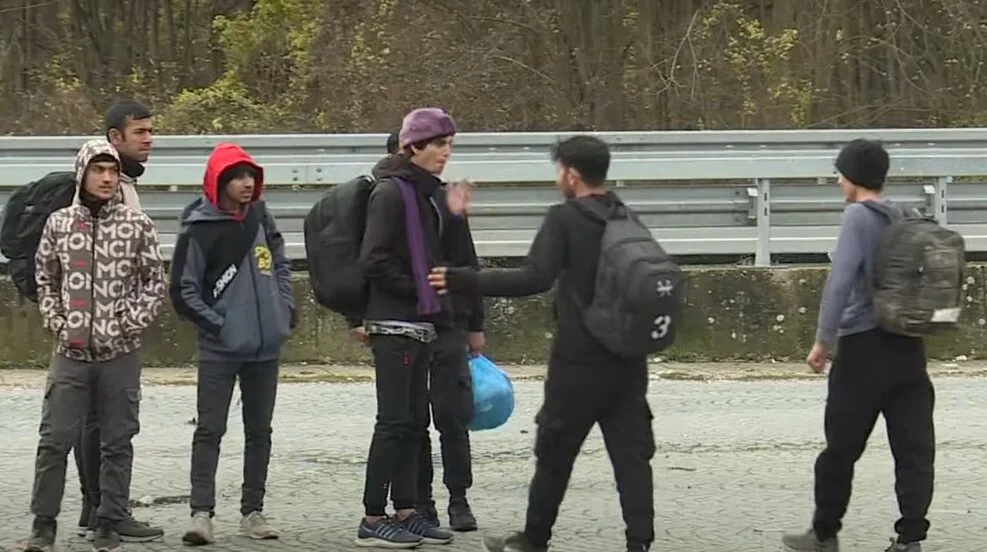
The government plans to set up “migrant ghettos” in Hungary, according to an opposition Jobbik-Conservatives official, who called for the prevention of “migrant imports”.
Instead of tapping Hungarians, the government has decided to draught in half a million migrant workers, László Lukács, the party’s parliamentary group leader, told a press conference in front of City Hall in Debrecen, in eastern Hungary. He insisted that the “migrant ghetto” planned for the city would house Asian migrant workers, who would take away the jobs of “the people of Debrecen” and depress local wages. Their presence would also compromise the culture and civic life of the city, he added.
To draw attention to this, he said Jobbik was placing a sign next to the construction of China’s Catl battery plant, pointing out that “thousands of migrant workers will come to this city and take away the work of Hungarians”. Lukács added that the plant would “leach Chinese chemicals into Hungarian soil”. Referring to the prime minister, he said the “Orban plan” for “the resettlement of migrant workers must be stopped”.
Read also:
Former Jobbik party leader Vona to start new party

Gábor Vona, the former leader of opposition Jobbik, said on Thursday that a foundation he had registered following the 2018 parliamentary election would be converted into a political party dubbed 2RK (Second Reform Age).
Vona said in a video on Facebook that “there could be a second reform age in Hungary in the 21st century, meaning a country that organises itself and a society that has self-respect”.
Instead of following ideologies, the party will pursue politics along the political vision of the reform age, he said. Vona said they would not deal with the “tribal conflicts” that characterise Hungarian politics today but “focus on their own issues while building bridges and seeking creative energies”.
He added that 2RK would not enter into an alliance either with the ruling parties or any opposition party.
Read also:
Russian Embassy on textbook scandal: 1956 is a complex issue

In Russia, Vladimir Putin has written a new history book on 1956, when rebellious radicals, former soldiers of fascist Hungary, took up arms and committed mass murder. The textbook concludes that the Russian withdrawal from Hungary was a mistake.
Russian embassy says no problem
“Modern Russia has an unchanging respect for the historical memory of the Hungarian people and recognises that there are complex issues in our common history, including the events of 1956. Therefore, we have always approached the issue with great caution and care, not allowing it to be used for political purposes and to examine the events of the past from today’s perspective, out of historical context,” the Russian Embassy in Budapest commented on the textbook scandal.
Eleventh-graders in Russia can learn history from a new textbook produced under the supervision of Vladimir Putin’s adviser Vladimir Medinsky. The book has several problems for Hungarians. Stalin is being rehabilitated and Putin is being portrayed as the saviour of the country, writes 444.hu.
In a Facebook post, the Russian embassy labels Meduza, who first wrote about the content of the textbook, a liar. According to them, the newspaper “specialises in the production and dissemination of anti-Russian fake news, for which it is rightly considered a foreign agent in Russia“.
Hungarians are outraged
The book has caused outrage in Hungary. Opposition parties reacted to the case and even the Foreign Ministry expressed its views.
Áron Máthé, deputy chairman of the National Remembrance Committee (NEB), told InfoRadio that what is written in the Russian history textbook is undoubtedly a falsification of history from a Hungarian point of view.
Hungarian freedom, as the 1990 Memorial Act makes clear, was born from the blood of the martyrs of 1956. “It’s like when we didn’t let go of ’48, we didn’t let go of ’56. It is such a bedrock. Our whole 20th century revolves around ’56, that’s the axis!”
The director of the Petőfi Literary Museum also finds it outrageous. “Inhuman dictatorships are still inhuman and remain dictatorships if someone starts to cosmeticise them afterwards. 1956 has already been called a counter-revolution (by Hungarians, no less), and that too was a desecration of our heroes,” said Szilárd Demeter.
“Russia still sees itself as an empire, and Central and Eastern Europe as its own sphere of interest,” said Ildikó Repárdszky, vice-president of the Association of History Teachers.
The Democratic Coalition accused the author of the textbook of falsifying history, while the president of Momentum wrote a letter to Hungarian Foreign Minister Péter Szijjártó, writes napi.hu.
Jobbik is also calling on the Foreign Minister to ask the Russian Ambassador to the EU. “We will not tolerate anyone talking about the 1956 revolution and its heroes in a humiliating way.”
Putin’s ambassador will be summoned due to anti-Hungarian textbook?
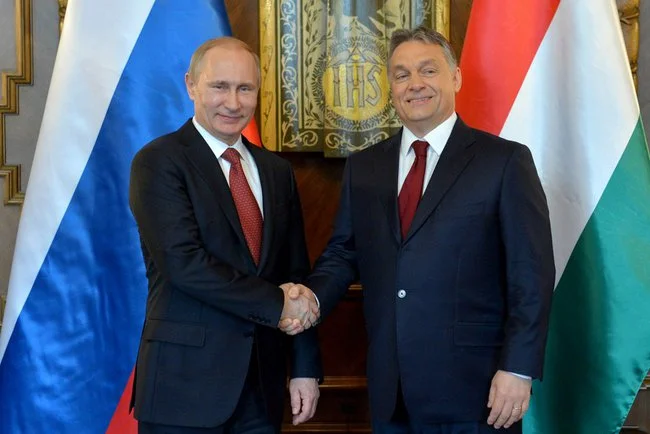
Opposition Jobbik-Conservatives has called on Foreign Minister Péter Szijjártó to summon Russia’s ambassador over a textbook recently published in Russia, in which Hungary’s 1956 anti-Soviet revolution is described as a “fascist revolt”.
Jobbik deputy group leader Koloman Brenner also called on the minister to protest in a memorandum against the textbook, stating that it “echoes the ideology of communist Soviet Union”.
Brenner said the government would need to take “serious steps of distancing itself” from the textbook. This could “at last restore the equilibrium of Hungary’s foreign policy”, he added. Brenner noted that in 2016, when the Russian side referred to developments in 1956 as a “pogrom”, Szijjártó summoned the Russian ambassador.
Read also:
Jobbik wants MPs’ communist-era secret police files released to public
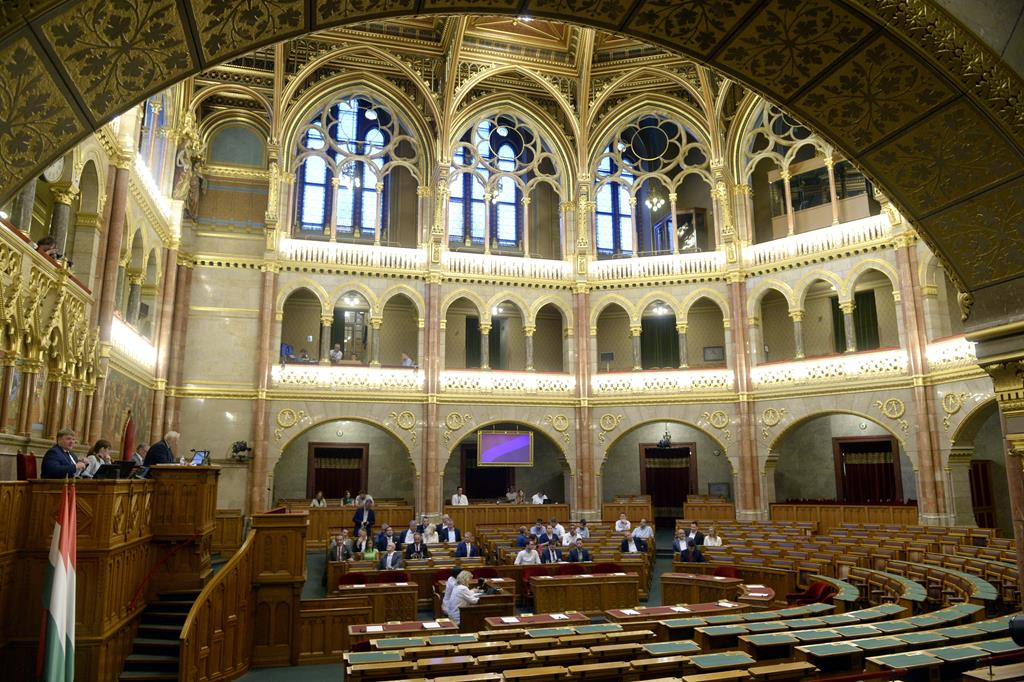
The opposition Jobbik-Conservatives has submitted to parliament proposals to investigate MPs’ activities in the communist secret police before the 1989 regime change and to defenestrate lawmakers who were spies and collaborators.
It is especially important to identify lawmakers who worked as members or agents of the state party’s secret service, Jobbik lawmaker Zoltán Sas, who also heads parliament’s national security committee, told a press conference on Monday. Sas has submitted two proposals to parliament on investigating sitting and former lawmakers.
Read also:
- PHOTO GALLERY: Why were 15 March celebrations oppressed in communist Hungary? – Read more HERE
- 33 years ago today, Hungary tore the first hole in the Iron Curtain – PHOTOS
Guest workers in Hungary a security threat?
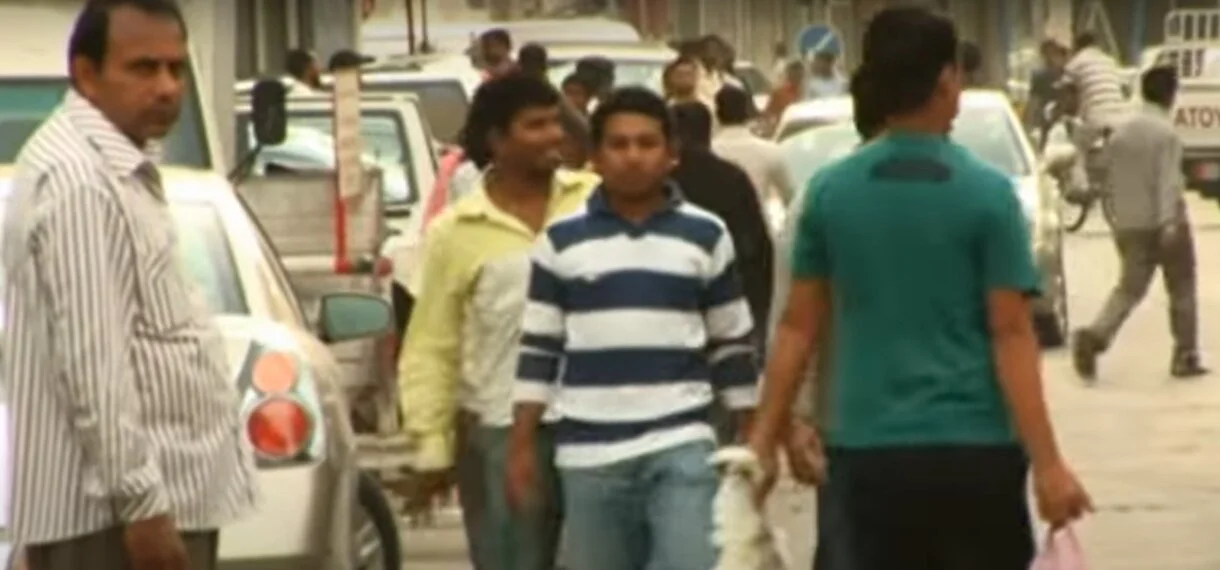
The opposition Jobbik-Conservatives party protests against the government using “Hungarian taxpayers’ money” to support the employment of foreign guest workers and has initiated a security screening of those workers whom the party considers “a security threat”, Jobbik politicians told a press conference on Tuesday.
Dániel Z. Kárpát, a lawmaker, said that central subsidy allocated by using taxpayers’ monies to three battery plants in support of creating jobs might have totalled 60 million forints (EUR 155,000). He added that those jobs were being filled for instance with “Kyrgyz and Filipino” guest workers.
“The government should use this money to subsidise jobs at Hungarian SMEs,” he said at the press conference held in front of the Samsung-owned battery plant in Göd, just north of Budapest. Zoltán Sas, the head of parliament’s national security committee, said he had submitted a written question to the minister overseeing the secret service to inquiry whether foreign guest workers arriving in Hungary were subjected to a security screening in advance.
Read also:
Zoltán Péter Varga, a district leader of Jobbik, critisiced the government for designating the Göd plant as a special economic zone. “Revenues generated in this zone in business taxes will land in the coffers of the county government which can distribute the funds as it pleases, for instance it can use the funds to support civil organisations linked to the government to create pro-government propaganda media,” he said.
Inflation devoured family allowance in Hungary

The opposition Jobbik-Conservatives party has called for the family allowance to be doubled and proposed that recipients be required to spend the benefits on the needs of their children.
Addressing a press conference on Saturday, Jobbik lawmaker Dániel Z Kárpát criticised the government’s “insufficient” back-to-school support measures, saying it was not enough to transfer the September family allowance at the end of August. He proposed the introduction of a “family card” on which families would get double the monthly allowance to cover back-to-school expenses.
The regular monthly allowance should also be doubled because “more than half” of its value has been lost due to inflation, he said. Putting monthly family allowances on the family card would ensure the money is spent on food and other items required to raise children, instead of on gambling and tobacco products, he added.
Opposition parties slam importing Asian guest workers: Hungarians should get the jobs

There is no need to import guest workers to fill jobs in Hungary, opposition Mi Hazánk labour spokesman János Lantos said on Friday in response to recent remarks by Foreign Minister Péter Szijjártó.
Szijjártó said that the government supported the import of guest workers in order to protect jobs in Hungary. Lantos said Mi Hazánk rejected the government’s economic policy which supported “big capital”. The party instead called for Hungary’s processing industry and SMEs that raise wages to receive support, he added. If current trends continue, he said, soon no Hungarians would be getting jobs, he said, adding: “What makes a Chinese battery plant a Hungarian workplace if construction is carried out by non-Hungarians?”
Lantos said that serving global capitalism was more important to the Hungarian government than protecting Hungarian jobs. Opposition Jobbik said that the government was planning to import “migrant workers from the east” whereas Jobbik was calling for western wages and everyone to succeed in their place of birth.
Deputy group leader Koloman Brenner said that “the arrival of a large number of people from an alien culture would upset the cultural balance … [and] traditional way of life”. The “masses of migrants” consisting mostly of men without accompanying females pose a security threat, he added. They take work away from Hungarians because they accept lower wages which brings down the wages for Hungarian workers, too, he said.
Read also:
Fidesz accused of carrying out population replacement

Ruling Fidesz is carrying out “a population replacement” programme by bringing foreign guest workers to Hungary, the leader of the opposition Jobbik-Conservatives party said on Wednesday.
“Fidesz has been deceiving Hungarians with the message for years that some hidden powers are preparing to carry out a replacement of the European population,” Márton Gyöngyösi, a party MEP, told a press conference. “But it has turned out that Fidesz itself wants to load 500,000 guest workers onto Hungarian society,” he said, adding that they would mostly be intended to work in Chinese-owned battery plants for wages and under conditions Hungarian workers would not accept.
In the meantime, hundreds of thousands of young Hungarians are leaving the country seeking better quality education or a workplace that gives them more respect, Gyöngyösi said.
Jobbik rejects all forms of migration, be it Brussels’ quota system for resettling migrants to Hungary or Fidesz’s plan to settle migrant workers in Hungary, he said.
On another topic, Gyöngyösi was asked about the HUF 506 million (EUR 1.3m) received in foreign campaign donations by Budapest Mayor Gergely Karácsony’s movement for last year’s general election. He said he had asked in an open letter Karácsony as well as Péter Márki-Zay, the prime minister candidate of the united opposition, for clarification of “what exactly happened”. “We cannot accept that Jobbik be punished for monies of which we have not seen a single penny,” he said.
Márton Gyöngyösi:
Parliament did not vote about Sweden’s NATO accession

In the absence of the governing parties, the special session of parliament initiated by the opposition lacked a quorum. With speeches made before the planned debate, Monday’s session lasted for about three quarters of an hour.
Convening a special session of parliament was initiated by Momentum after Türkiye had announced its support for Sweden’s accession at the NATO summit held in Vilnius earlier this month. The initiative was supported by the parliamentary groups of the Democratic Coalition (DK), the Socialists, Jobbik, Párbeszéd and LMP, and an independent lawmaker. The opposition parties in addition initiated including another five issues on the session’s agenda.
Addressing the session, Momentum’s Ferenc Gelencsér criticised lawmakers of allied ruling Fidesz and KDNP over their absence, asking the question: “Why do they collect their monthly pay if they do not bother to show up at their workplace?”. Gelencsér said the session was meant to address the issue of security, but “with their absence, lawmakers of the governing parties are sending the message that they don’t care about the war, and the security of Hungarians, either”. “Creating peace is now the most important task. Sweden’s membership would certainly strengthen Hungary’s membership and would guarantee peace,” he said, adding that the governing parties had kept blocking the ratification over the past year.
László Varjú, of DK, said it was “a serious sin of [Prime Minister] Viktor Orban and his government that Hungary had by now remained the only EU and NATO member to oppose the NATO membership of Sweden which is an EU member. He said Monday’s session would have been an excellent opportunity for the ratification, adding that “Viktor Orban is serving Putin and a postponement of the ratification serves Putin’s interests”.
Opposition parties outraged
Máté Kanász-Nagy, of LMP, also criticised the governing parties’ lawmakers for “disrespecting the House” by not attending the special session at which crucial issues could have been discussed. He raised the issue of battery plants, insisting that the government wanted “to turn Hungary into a battery colony” and took a decision on new plants without asking local residents about those projects.
Bence Tordai, of Párbeszéd, also criticised the government for “bringing battery plants” to Hungary while realising that the country lacked the appropriate conditions for such investments. He also criticised the government for an “irresponsible” approach to climate change and the energy crisis and refusing to consider the opposition’s proposals.
László Toroczkai, the group leader of radical Mi Hazánk, said that the opposition parties had “acted on the order of their masters” when initiating the special session over Sweden’s membership. He said Hungarians were interested in entirely different issues such as “empty state coffers” and “additional burdens put on Hungarian workers”, calling for measures to stop the “oligarchs”.
Koloman Brenner, of Jobbik, called for an educational reform and spending at least 8 percent of the country’s GDP on the sector. Imre Komjáthi, of the Socialists, called for improving the situation of pensioners. After the addresses, the chair of the session told the lawmakers present that the group leaders of Fidesz and KDNP had informed the speaker of parliament that their politicians would not attend either the meeting of the house rules’ committee or the special session. János Latorcai then closed Monday’s session.
LMP calls for swift ratification of Sweden’s NATO accession
Opposition LMP has called on the Hungarian parliament to ratify Sweden’s accession to NATO as soon as possible. Antal Csárdi, the party’s deputy group leader, told a press conference on Monday that there was “no sane reason for the government parties to block Sweden’s entry” into the alliance. Earlier this year, the parliament ratified Finland’s accession “after a similar blockade achieved practically nothing,” he said.
“Hungary’s international reputation has never been this bad,” Csárdi said, insisting that the country was left in the dark on classified information collected by military allies “because they have good reason to fear that that information gets intentionally or unintentionally leaked immediately to the Russians.” Peace in Hungary is guaranteed by NATO, “not by the Russians”, he said. LMP is ready to vote for the ratification of Sweden’s NATO membership at an extraordinary session of parliament, should the ruling parties decide to convene one, Csárdi said.
Zero tolerance will be scrapped in Hungary for drivers?
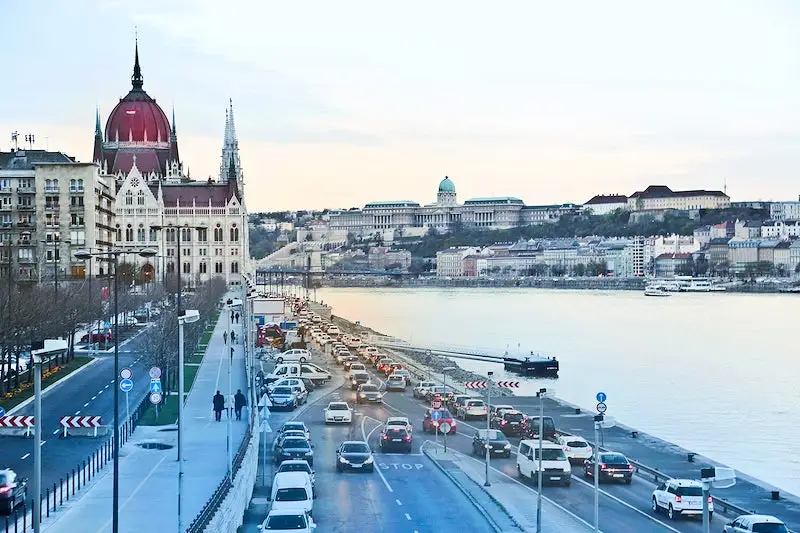
The opposition Jobbik-Conservatives have called for updating driving regulations in Hungary, and review the necessity of the zero tolerance against alcohol consumption, the party said on Friday.
The current regulations date back to the Soviet era and cannot be maintained in the 21s century, parliamentary group leader László György Lukács told a press conference. Patrik Schwarcz-Kiefer, the politician responsible for motorists’ affairs, called for scrapping “pointless 30km” speed limits and focusing on enforcing “more sensible limits”.
He said speeding regulations should be modeled on the Austrian system, where the owner of the car is not obliged to reveal the person driving at the time of the misdemeanor but then must pay a higher fine. As regards drinking and driving, the party proposes introducing the Croatian system, where the consumption of alcohol equivalent to the content of a glass of wine is permitted but prompts an aggregated sentence if the driver causes an accident under the influence, he said.
Czech prime minister outraged on Orbán’s keynote speech

The opposition parties have slammed the prime minister’s keynote speech at the summer university in Baile Tusnad, in central Romania, saying it had failed to offer answers on the challenges to Hungarian interests, everyday life, and the future of the world.
Czech PM slams Orbán
Czechia is a sovereign state, and its government is protecting the interests of the nation, Czech Prime Minister Petr Fiala said on Saturday, responding to Prime Minister Viktor Orbán’s speech at the Balvanyos Summer University in Baile Tusnad, in central Romania.
Responding to Orbán’s remarks on “federalists’ attack on the Visegrád Group”, Fiala said: “Czechia is a sovereign state. We decide independently what we promote, support or want to change within the European Union.” “Absurd stigmatisations will certainly not contribute to the necessary cooperation of central European countries. On the contrary, that requires mutual respect,” he said.
Just like the opposition
Commenting on the speech Viktor Orbán gave at the Bálványos summer university, Hungarian opposition party Jobbik-Conservatives accused Orbán of “governing the country motivated by a wish to keep his power and by foreign interests, rather than the Hungarian national interests.” During Orbán’s tenure, the forint sank to an all-time low, inflation of food prices skyrocketed and “the cost of living crisis continues to deepen,” the statement said. Jobbik said the party wanted to create a “normal country with normal wages and life”, and give the country a “responsible prime minister and government that would serve the interests of the Hungarian nation”.
LMP said the speech “had precious little to do with the most important challenges of the everyday lives of Hungarians”. “Contrary to Orbán’s production report”, the Hungarian economy has not become more independent but “incredibly vulnerable” in the past decade, LMP said. As a result, Hungarians feel the current crisis the most, the party said. Hungary’s plight is rooted in a “fundamentally flawed economic policy” that exposed the country to Russian energy and Western capital simultaneously, the statement said.
LMP said it was a “mistake of historic proportions … that the government should add Chinese industry to our dependencies through battery colonisationn”, as battery plant investments were “tantamount to sacrificing our future and independence for short-term political goals”.
Párbeszéd-Greens called the speech “disappointing”, saying it should have been used to “offer solutions to the biggest problems for the future of Hungary and the world: the ecological and climate crisis and related issues such as the cost of living crisis in Hungary”. “Instead of answers, it has only shown one thing: that he has no relevant thoughts about our future,” the party said. “Hungarians’ interest would be a fair, safe, green Hungary of solidarity, but Viktor Orbán and Fidesz’s politics has taken us further away from that … according to this speech, they will continue the same way, barging full-tilt ahead in history’s dead-end street,” they said.
Opposition urges session on Erasmus, Horizon programmes

The opposition Jobbik-Conservatives want lawmakers to convene to discuss ways to ensure that Hungarian universities run by foundations are not excluded from the European Erasmus and Horizon programmes.
The party is collecting MPs’ signatures in support of its initiative to convene a special session of parliament, party deputy group leader Koloman Brenner said on Tuesday, insisting that the government had made “no progress” in making commitments required by the European Union which would unblock access to Erasmus scholarships.
Previously, around 25,000 Hungarian students, or 10 percent of the total, could study abroad with an Ersasmus scholarship. Also, in the last 7-year EU funding cycle, the EU supported 1,100 research projects worth EUR 370 million in total, he noted.
As we reported HERE, several Hungarian universities are in danger of losing access to Erasmus and Horizon support.
Opposition Jobbik-Conservatives party initiates special parliament session over EU Erasmus financing

The opposition Jobbik-Conservatives party has initiated convening a special session of parliament over the issue of financing for the EU’s Erasmus scholarship scheme, the party said on Monday.
The deadline for the government to sign “the financial commitments” towards the programme “is approaching fast” and unless progress is made quickly, several Hungarian universities “forced by the government into a new operational model” will be barred from accessing EU funding worth hundreds of millions of euros, the party said in a statement.
An agreement should be signed with Brussels this month, the party said, citing however an EU spokesman as saying that “no substantial steps” had been taken that could make one optimistic.
“It will be too late to address the changes requested by the EU [for unfreezing funding] only at the autumn session of parliament,” Jobbik said and called for “preventing the Orbán government could drive Hungarian higher education out of the EU“.
Dramatic turn in Hungarian politics: former PM candidate may return
Gábor Vona ran 3 times in parliamentary elections as the Jobbik party’s candidate for Prime Minister. The politician has now spoken in a YouTube programme about the possibility of returning to politics, but with a few conditions.
Gábor Vona has talked about returning to the political scene. In a YouTube programme, the former MP said it was not impossible that he would take the plunge into politics again, although there are a few conditions, Index writes.
The politician, who previously led Jobbik for 12 years and now runs a foundation (Második Reformkor Alapítvány, Second Reform Era Foundation), said:
I have a lot more to say and political ambition. But to get back into politics, I need to get all my sentences right at the end without question marks, and I need to feel that what I can do in politics is more useful than what I can do through a civic foundation. If I don’t have those things, if I feel that politics doesn’t give me more and that I can’t work more effectively in it than I can as a civilian, then there is no point.
Gábor Vona ran as Jobbik’s candidate for prime minister in three elections: in 2010, 2014 and 2018. Under his leadership, Jobbik was the strongest opposition party in 2014 and in 2018. Following his defeat in the 2018 elections, he resigned as chairman of Jobbik (a post he had held since 2006) and also gave up his parliamentary seat.
Jobbik leader: Party not involved in unlawful foreign campaign donation affair
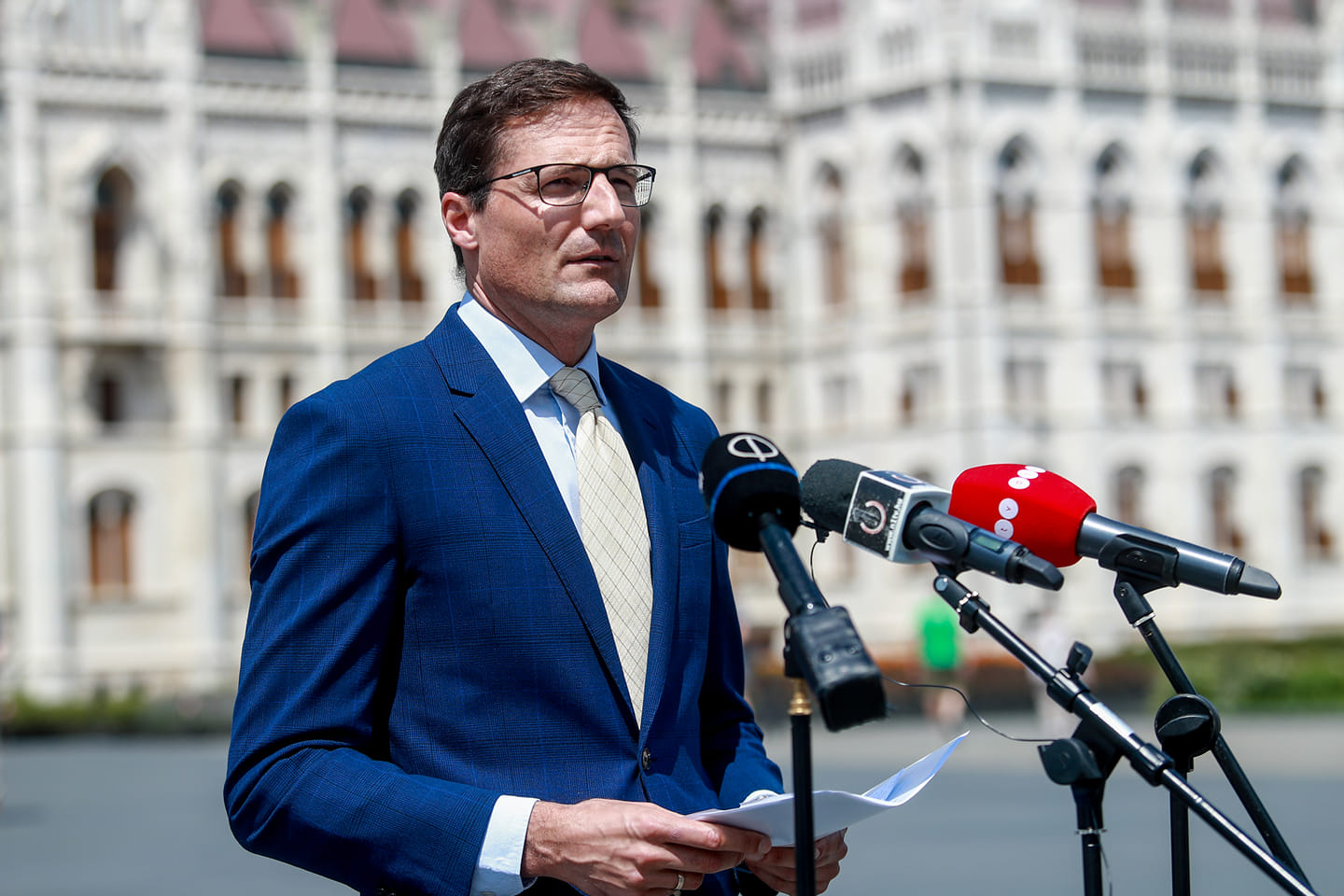
Márton Gyöngyösi, the leader of Jobbik-Conservatives, said on Tuesday he was challenging the head of the State Audit Office (ÁSZ) to a public debate to prove that his party was not involved in the issue of unlawful foreign campaign financing of opposition parties in last year’s parliamentary election.
At a press conference held in front of the headquarters of ÁSZ, Gyöngyösi referred to a recent draft report prepared by the authority on suspicions that the six opposition parties running on a joint list in the 2022 election had received donations that constituted unlawful party financing and had violated Hungarian election law by accepting them. The report released last week suggests that the six parties could be fined HUF 3.2 billion (EUR 8.6m) in total.
“It turns out from the report that Jobbik has accounted for its 2022 campaign spending down to the last penny,” Gyöngyösi said, adding that ÁSZ would also make Jobbik subject to a fine.
The ÁSZ document and a report by the National Information Centre show that “Jobbik has nothing to do with the money movements ÁSZ now seeks to blame on the party under the pretext of unlawful party financing”, said Gyöngyösi.
He said he had not participated in the six-party consultations initiated by the ÁSZ president prior to releasing the draft because they regarded the report as “stating falsehoods”. “Had we been engaged in talks it would have suggested that we had got something to do with the whole affair,” the Jobbik leader said.

